
How Dimitra (Blockchain For Agriculture) Is Revolutionizing Farming Practices
This article is intended for educational purposes and is not affiliated with Dimitra Technologies in any way. It explores their innovative, agriculture-focused vision, which empowers smallholder farmers through technology—an approach that aligns with Eyes For Eco's commitment to sustainability and agricultural advancements.
5/2/20257 min read
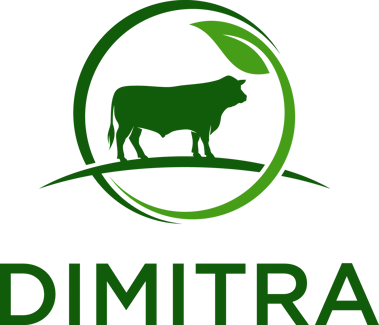

Smart Contracts for Agricultural Processes
Smart contracts on Dimitra’s blockchain are used to create automated, reliable processes in agriculture. These digital agreements enforce terms, track data, and enable transactions without manual intervention.
Automating Transactions and Agreements
Through smart contracts, Dimitra enables farmers, buyers, and suppliers to enter agreements that are executed automatically when set conditions are met. For example, payment can be released to a farmer once crop delivery is confirmed by a trusted sensor or by third-party verification.
These contracts reduce the risk of delayed or disputed payments. Parties negotiate terms, such as price and quality, which are coded into the blockchain. Once the predefined requirements are fulfilled, funds or goods are transferred instantly.
Benefits:
Removes the need for intermediaries
Reduces costs associated with paperwork and administration
Increases trust among all parties, as terms cannot be altered once set
Smart contracts can also handle complex agreements involving multiple parties, such as cooperatives or input suppliers, making agribusiness processes more transparent and predictable.
Efficiency in Resource Allocation
Smart contracts help optimize the distribution and tracking of resources like seeds, fertilizers, and water across multiple stakeholders. For instance, if a farming cooperative sets quotas for water usage, a smart contract can automatically limit access once the quota is reached.
Resource distribution schedules can be updated in real time, reflecting changes in weather or supply. This reduces waste and ensures that resources reach those who need them promptly, with all transactions recorded and accessible for audit.
These contracts support transparent records for subsidies, insurance claims, and equipment sharing. Parties involved always have clear, tamper-proof logs of allocations, reducing misallocation and fraud, and allowing for better long-term planning.
Farmer-Centric Digital Identity Solutions
Dimitra integrates blockchain-based digital identity tools designed specifically for farmers. These solutions enable smallholder producers to securely manage their agricultural records and credentials.
Access to Credit and Financial Services
Digital identity streamlines access to credit by allowing farmers to verify their land ownership, production history, and compliance data with financial institutions. By storing this information on a secure blockchain, data tampering is minimized, and lenders gain greater trust in borrowers’ profiles.
Banks and microfinance providers can quickly assess risks and process loan applications by referencing blockchain-verified records. This approach reduces paperwork and the time needed for evaluation. Farmers who previously had limited or no formal credit history can build transparent profiles, enabling access to essential financial products.
Benefits:
Faster loan approvals
Improved risk assessment
Broader reach of financial services
For small-scale farmers, this results in more consistent financing opportunities and increased investment in productivity-enhancing technologies.
Integration With IoT and Data Analytics
Dimitra's platform leverages IoT sensors and advanced data analytics to strengthen farm operations. These tools deliver measurable benefits such as real-time environmental tracking and actionable insights for farm management.
Real-Time Farm Monitoring
Dimitra integrates with a range of IoT devices including soil moisture sensors, weather stations, and GPS-equipped machinery. These devices collect data every few minutes, updating critical parameters like temperature, humidity, soil pH, and precipitation.
The data flows directly to a centralized dashboard, letting users monitor field activity and conditions remotely. For example, a farmer can receive instant alerts about irrigation needs or pest risks from anywhere with internet access.
This real-time monitoring supports early intervention. Immediate responses to anomalies reduce crop stress and limit resource waste. Consistent tracking also enables trend analysis for each plot, which helps plan seasonal and daily activities.
Improved Decision-Making Through Insights
Dimitra employs machine learning and analytics to convert vast collections of sensor data into clear, actionable recommendations. For instance, the system may analyze soil nutrient profiles and suggest optimized fertilizer schedules.
The platform’s analytics engine cross-references historical yields, satellite imagery, and weather patterns to highlight potential risk factors or yield opportunities. Key insights are presented in simple visualizations and ranked lists, prioritizing critical tasks.
By using these data-driven insights, farmers are able to make precise, timely decisions. This leads to improved yields, reduced costs, and more effective use of land and resources. The system supports compliance by generating automated reports for audits or government programs.
Sustainability, Inclusion, and Future Expansion
Dimitra deploys digital and blockchain tools to address key agriculture challenges. Its features are designed to boost sustainable farming, empower smallholders, and make solutions scalable for global adoption.
Environmental Sustainability Initiatives
Dimitra uses data-driven insights to help farmers reduce input waste, optimize water management, and monitor crop health. Its blockchain platform tracks and verifies sustainable practices such as reduced pesticide use, efficient fertilization, and biodiversity protection.
Satellite imagery and IoT sensors are integrated to assess environmental impacts. Farmers receive tailored recommendations to lower emissions and manage soil health. The platform offers automated compliance tracking for environmental certification schemes.
Key elements include:
Carbon footprint reporting tools
Real-time alerts for field anomalies
Resource-efficient farm management modules
Smallholder Inclusivity Programs
Dimitra designs its solutions to be accessible to small-scale farmers in developing regions. The platform’s multilingual interface and mobile compatibility ensure broader adoption.
Training programs, field demonstrations, and digital support groups are provided to help users adopt smart farming techniques. Dimitra connects smallholders with markets, input suppliers, and financing opportunities through its digital marketplace.
Support features include:
Microcredit and input financing modules
Mobile-based agronomy advice
Farmer network and cooperative management tools
Scaling Innovations Across Borders
Dimitra’s modular platform allows for rapid adaptation to diverse geographies and crops. The system supports national traceability standards and cross-border commodity tracking via blockchain.
The platform partners with regional governments, research institutes, and NGOs to localize features and ensure compliance with local regulations. Dimitra promotes technology transfer models that enable efficient scaling.
Scaling infrastructure highlights:
API access for integration with local systems
Support for regional languages and data formats
Customizable compliance and reporting frameworks
Learn more on dimitra's website and medium.com page.
Dimitra is a blockchain-based platform designed to address the specific challenges faced by the agricultural sector. It offers a suite of innovative features that streamline farm management, enhance traceability, and enable data-driven decision making for farmers and agribusinesses. By combining advanced technology with user-friendly tools, Dimitra aims to make modern agricultural solutions more accessible.
The platform stands out for its ability to integrate IoT data, provide transparent recordkeeping, and support compliance requirements. Farmers and stakeholders benefit from real-time information, improved supply chain transparency, and tailored insights that help optimize yields and reduce operational risk.
For those interested in how blockchain and digital tools can impact food production and safety, Dimitra presents a range of practical, easy-to-implement features. The following points will explore ten of its most forward-thinking innovations and explain how they address real-world needs in agriculture.
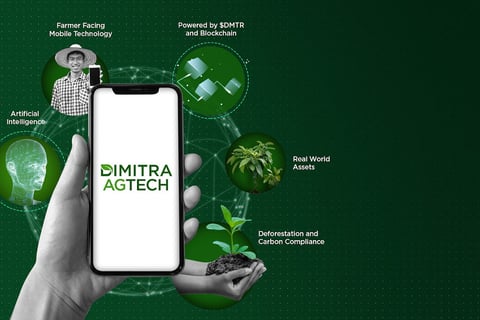

Overview of Dimitra Blockchain for Agriculture
Dimitra uses blockchain to create more secure, reliable, and transparent systems for managing agricultural information and transactions. By combining blockchain technology with agriculture-specific features, it delivers precise tracking, data integrity, and efficient workflows.
How Dimitra Integrates Blockchain Technology
Dimitra incorporates blockchain by storing data from every stage of agricultural production—planting, harvesting, processing, transportation, and distribution—on a decentralized ledger. This method ensures that all records, such as crop yields, soil conditions, and supply chain events, are immutable and traceable.
Farmers and stakeholders use mobile and web applications to log events, upload documents, and certify actions directly to the blockchain. Smart contracts automate transactions, such as payments for produce or equipment, and enforce agreements transparently. Blockchain nodes operated by trusted partners verify and record events, enhancing system security and preventing unauthorized modifications.
Integration with existing agricultural management systems is supported through APIs, allowing seamless exchange of information. Data privacy is maintained by using permissioned access controls, so only authorized parties can view sensitive information.
Core Benefits for the Agriculture Industry
Dimitra provides increased transparency, enabling stakeholders to trace the origin and movement of crops and livestock from farm to market. This helps prevent fraud and improves food safety by allowing rapid identification of contaminated or counterfeit products.
Through blockchain, Dimitra reduces administrative workload by automating compliance reporting and reducing paperwork. It helps smallholders and cooperatives gain fair market access by ensuring transaction records are permanent and verifiable. With real-time data access, suppliers, buyers, and regulators can make better-informed decisions, leading to improved efficiency and trust in the food supply chain.
Key benefits include:
Verifiable supply chain tracking
Reduced data tampering risks
Faster and more reliable payments
Streamlined recordkeeping and certification
Data Traceability and Transparency
Dimitra’s blockchain platform enhances the reliability of agriculture data by recording every transaction and movement in an immutable, accessible ledger. This ensures that all stakeholders can access accurate, real-time information as products move from farms to markets.
End-to-End Supply Chain Visibility
With Dimitra, data entries begin at the farm level, including planting dates, seed varieties, and field treatments. Each step—such as harvesting, storage, transport, and processing—is logged with time-stamped records.
Smart contracts and encrypted QR codes allow seamless tracking of produce batches. Farmers, distributors, and retailers view the detailed movement and condition of goods. This transparent process enables rapid detection of issues, such as delays or spoilage.
Key benefits include:
Complete audit trail of agricultural products
Simplified compliance with export regulations
Faster recall capability during safety incidents
By linking every activity on the blockchain, Dimitra provides stakeholders with a precise, verifiable chain of custody.
Fraud Prevention and Product Authenticity
Dimitra’s platform reduces opportunities for data tampering or misrepresentation. Each entry is digitally signed, and once data is entered, it cannot be altered or deleted.
This design makes counterfeiting or substitution of agricultural products extremely difficult. Stakeholders can verify the true origin, certifications, and handling history of every item.
Retailers and consumers use QR codes or digital interfaces to confirm product integrity:
Ensures adherence to organic, fair-trade, or GMO-free claims
Strengthens trust in supply chains
Discourages fraudulent labeling and transactions
Immutable blockchain records help prevent document forgery and ensure producers receive recognition for their authentic practices.


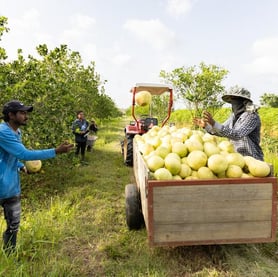



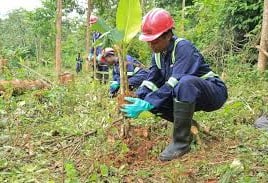

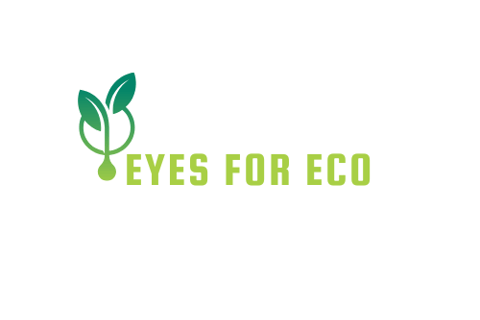

Sustainability
Explore eco-friendly practices for a greener future.
Gardening
eyesforeco@gmail.com
© 2025. All rights reserved.
